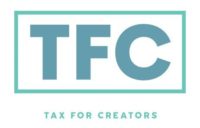Twitch has emerged as a pivotal platform for content creators, offering multiple avenues to earn income. However, with this revenue comes the responsibility of understanding and managing taxes. For Twitch streamers in Canada, here’s an enhanced guide to help you navigate Canadian tax intricacies.
Types of Taxable Income on Twitch
Twitch streamers have diverse income streams, each with its tax implications:
- Donations: Often received via platforms like Streamlabs or direct transfers, these are considered taxable income.
- Bits: Viewers buy Bits from Twitch and use them to ‘cheer’ for streamers. When you receive Bits, they’re considered income.
- Subscriptions: Viewers subscribe to channels for exclusive content or emotes. Subscription revenue is taxable.
- Gifts: If you receive free products to promote on your Twitch channel or other platforms, it’s considered taxable income. The fair market value, or the price you would’ve paid had you not received them for free, should be declared.
- Ad Revenue: Money earned from ads displayed on your streams is taxable.
- Affiliate Sales: If you promote products and earn a commission, this too is taxable.
Is Twitch Streaming Considered a Business?
Yes, the Canada Revenue Agency (CRA) categorizes Twitch streaming as a business. This mandates the reporting of all Twitch-related earnings as gross business income. However, the silver lining is the entitlement to various deductions.
Sole Proprietorship and Twitch Streaming
Most Twitch streamers operate as sole proprietors. This is the simplest form of business structure where you pay personal income tax on the net income generated by your business. As a sole proprietor, your Twitch income is reported on your personal income tax return under form T2125 “Statement of Business or Professional Activities”. The NAICS code 519130, which stands for “Internet Publishing and Broadcasting and Web Search Portals”, is an appropriate classification for Twitch streamers.
Deductions: Maximizing Your Tax Savings
Being aware of potential deductions can significantly reduce your taxable income:
- Business use of home: If a portion of your home is dedicated to streaming, editing, or other business activities, you can claim a percentage of home-related expenses. This includes property taxes, utilities, insurance, and even mortgage interest.
- Office Supplies: Not just limited to pens and papers. This can include items like headphones, green screens, or other tools essential for streaming.
- Internet & Cell phone: If you use your internet and phone for streaming or business communication, a portion of those bills can be deducted.
- Professional Fees: Hiring a graphic designer for your channel’s logo? Or a consultant to boost your channel’s reach? These are deductible.
- Travel: Attending TwitchCon or other industry events? Travel, accommodation, and even meals can be deducted.
- Software & Subscriptions: Monthly fees for streaming software, video editing tools, or even music licenses can be deducted.
- Gaming Equipment: If you’re a game streamer, the cost of games, consoles, and even in-game purchases made for business purposes can be deductible.
Capital Cost Allowance (CCA)
Certain assets can’t be fully deducted immediately. For instance, high-value cameras or computers are deducted over time. It’s essential to understand the CCA rates for these assets to claim the right amount each year.
Tax Withholding and W-8BEN Form
For Canadian Twitch streamers, Amazon (which owns Twitch) won’t withhold taxes on your earnings. However, to benefit from the Canada-U.S. treaty withholding tax rates, you need to complete the W-8BEN form. This form indicates to Amazon that you’re subject to the treaty’s tax rates, which in many cases is a 0% withholding rate. Without this form, Amazon might withhold at the default rate, which can be much higher. It’s crucial to manage your earnings and set aside funds for your tax bill.
Tax Deadlines and Sales Tax (GST/HST)
Remember the tax deadlines: April 30 for any balances owing to CRA and June 15 for T1 return filing. If you earn less than $30,000 gross as a sole proprietor over 4 consecutive calendar quarters, you don’t need to register for GST/HST. However, voluntary registration can have benefits.
When in Doubt, Consult a Tax Accountant
Canadian tax law is complex. Enlisting a tax tax accountant’s help, especially one familiar with digital content creation, can be invaluable. They’ll offer tailored advice, ensuring you benefit from all available deductions and remain compliant. If you are in need of an accountant for your YouTube earnings, reach out to our accounting firm where we specialize in working with content creators.



